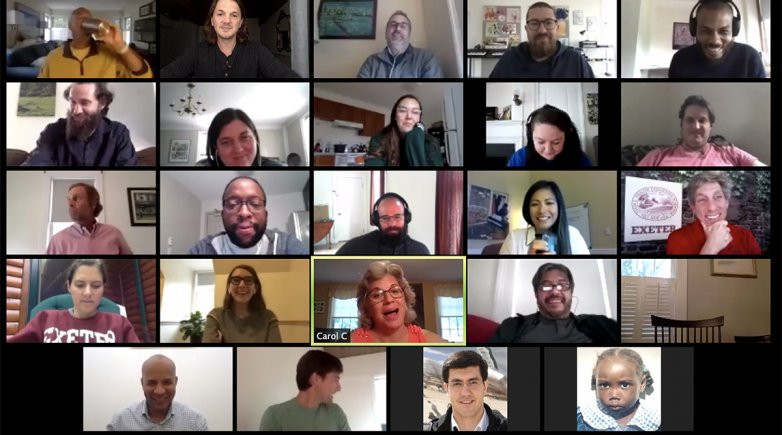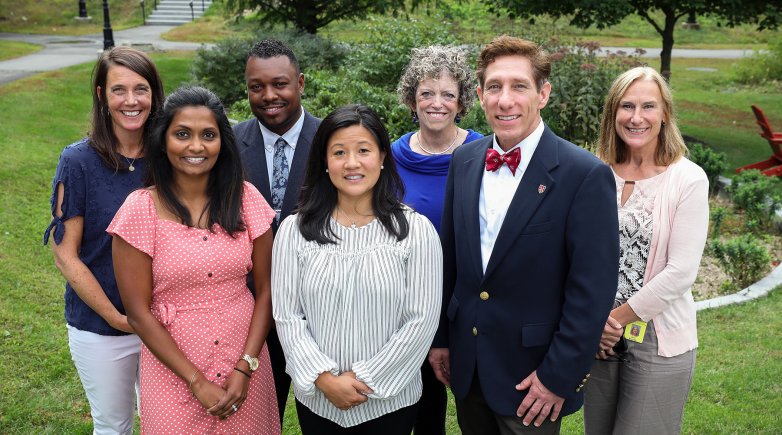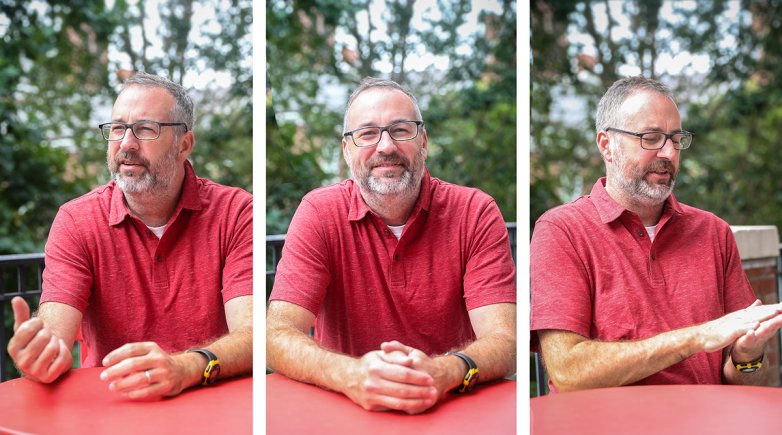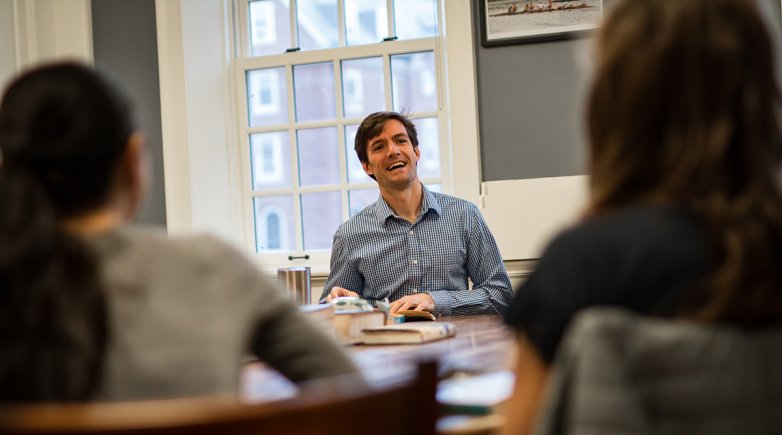New faculty dive in ahead of school year
A three-day orientation offers the Academy's newest teachers a taste of Exeter.
A gaggle of new faculty members gathered virtually for a crash course in Exeter ahead of the opening the 2020-21 school year. Led by Academy administrators and department heads, the three-day orientation program focused on the topics of teaching Harkness, student support and diversity, equity and inclusion.
In a Q&A session co-hosted by Dean of Students Brooks Moriarty ‘87 and Dean of Residential Life Carol Cahalane, the discussion centered around how best to connect with students at the start of this unique term, in which all classes will be conducted remotely and physical distancing will be the rule. Prompting the conversation, Moriarty asked the group, “What do you think the kids are most worried about right now and what will they need most from us when they step foot on campus?”
Katie Brule, an incoming intern in the English Department, said her own experience as someone new to the Exeter community has given her a similar perspective of new students starting at the Academy this fall.
“One of the things I was worried about in coming to Exeter was not being able to make connections in the same way that I’d be able to without a pandemic,” she said. “Especially if students are new, they’re coming into a new dorm and new space and they don’t have the same opportunity to explore and make new friends.”
The majority of the new students starting at the Academy this fall will be preps, a contingent Ninth Grade Program Coordinator and English Instructor Tyler Caldwell knows well. In his role working with Exeter’s youngest students, Caldwell strives to ensure the prep class is adjusting to all aspects of life at Exeter. He touched on the importance of faculty members encouraging their classes to engage on a personal level early on in an effort to bridge any communication gap that may result while distance learning.
“I’m imagining many teachers when creating their courses will spend even more time in that first week focused on developing a sense of community and connecting to students as people, rather than diving right into the content,” he said.
Citing his own experience with his teenage sons, Chris Thurber, the associate director of Counseling and Psychological Services, talked about the importance of providing “informal spaces” outside of the classroom for students to reconnect as they transition out of the virtual world and back to in-person communication.
“They wanted to just sit and talk for hours, which speaks to how deprived they’ve been of face-to-face contact,” he said of his sons’ first socially distanced gathering with friends. “There are going to be a lot of good activities and orientations, but I want to encourage everyone to provide the space that does not need to have a theme or activity associated with it, it just needs to be initiated and that will meet people’s needs quite well.”



